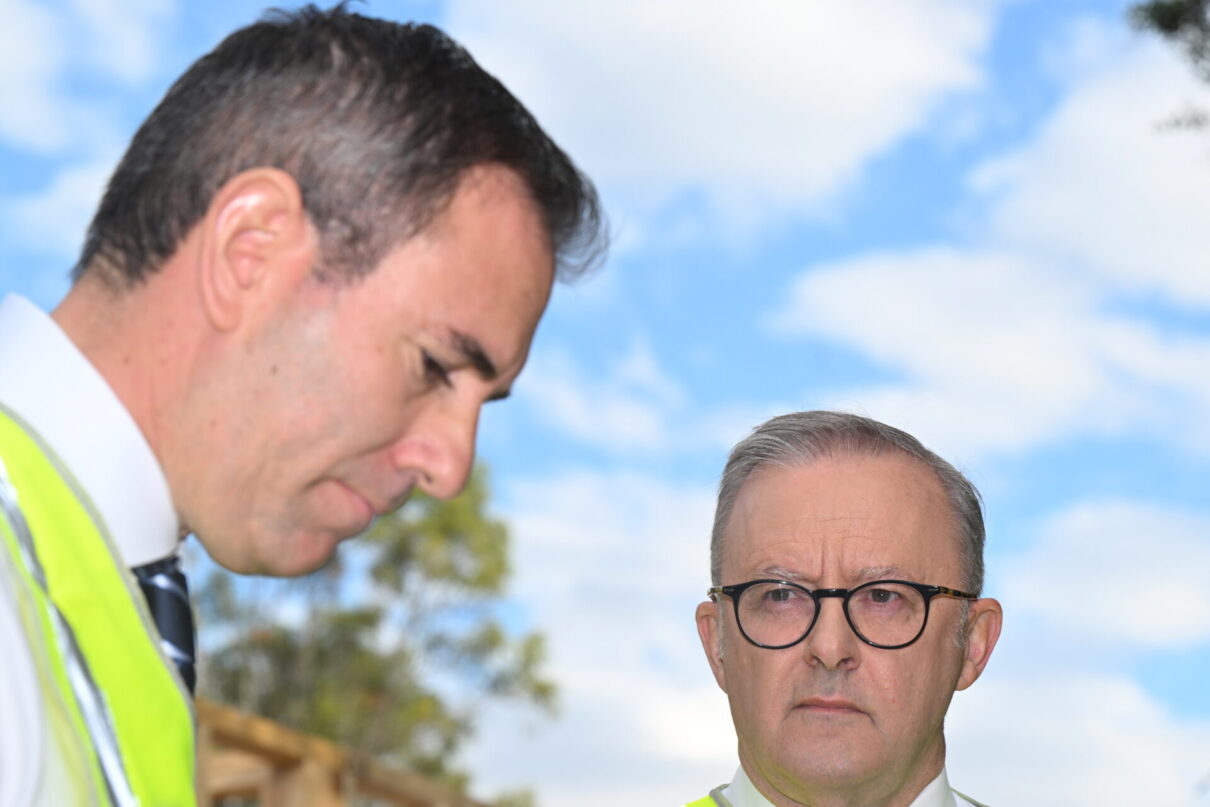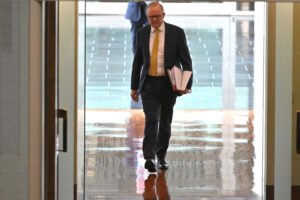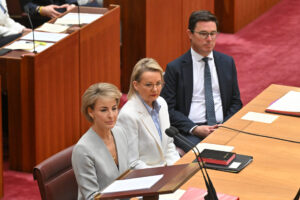Labor has never been in a better position to implement its national policy platform.
But will the Albanese government spend the next three years using its thumping majority to lead bold reforms or deliver damp squib solutions?
Next week’s productivity roundtable will reveal which path the Prime Minister intends to tread, and so far, it looks like all it’s set to do is weaken environment laws and delay big tax reforms until after the next election.
Between the Treasury advice leaked to the ABC and the Prime Minister ruling out any major tax reforms before the next election, the government poured a bucket of cold water on any real excitement building for the productivity roundtable.
And the productivity roundtable has a big job ahead of it. Australia doesn’t just have a productivity problem, it has a revenue problem.
Australia is one of the lowest-taxing countries in the developed world. In fact, if Australia collected the OECD average in tax – not the highest amount, just the average – the Commonwealth would have had an extra $140 billion in revenue in 2023-24.
To put that in perspective, it’s equivalent to the combined cost of the aged pension, the NDIS, Jobseeker, and the child care subsidy, along with the total government spending on housing, vocational education, and both the ABC and SBS. It’s clear that bold tax reforms are necessary.
Despite being a low-tax country, Australia is still one of the richest countries on Earth. Yet many people’s living standards have been going backwards.
Why? Lots of reasons.
The Coalition enacted policies that deliberately kept wages low. So, when excessive corporate profits drove inflation after the pandemic, the cost of everyday living rose faster than people’s paychecks could keep up.
Allowing multinational gas companies to export 80 per cent of Australia’s gas tripled domestic gas prices and doubled wholesale electricity prices on the east coast of Australia. Climate change-fuelled extreme weather is driving up insurance costs and premiums.
The cost of buying a house is now out of reach for most young people, and the cost of renting has skyrocketed, too. This is how most people experience an increase in inequality – your paycheck doesn’t go as far as it used to.
But those everyday cost-of-living increases obscure a larger truth about the Australian economy.
It’s just less fair than it used to be. It used to be that a rising tide lifted all boats. When the economy grew, Australians all shared the benefits.
If you imagine Australian economic growth were a cake shared between 10 people, in the decades after World War II, the bottom 90 per cent of Australians used to get 9 pieces of cake, leaving one piece for the top 10 per cent.
In the decade after the Global Financial Crisis, the richest person at the table ate nine pieces of cake, and the bottom 90 per cent of people shared less than one piece of cake between them. It’s hugely unfair.
There’s not much point boosting productivity if a majority of working people don’t get to share in the benefits.
Treasurer Jim Chalmers is keen to have that debate. He described the game of ruling things in or out as “cancerous” and vowed to dial up Labor’s ambition for bold reforms.
And let’s be clear, to reverse that path of Australia’s growing inequality will require bold tax reforms. It’s clear the Treasurer understands that, as well as several of the roundtable invitees, who want tax reform on the agenda at the productivity roundtable.
The ACTU submission included several tax reforms, including to negative gearing and the CGT discount, but also reforming the broken Petroleum Resource Rent Tax (PRRT) and replacing it with a new 25 per cent export levy on gas.
Negative gearing together with the CGT discount has so warped our housing market, many young Australians have given up on every owning their own home. But it looks like the PM has put off reforming those distortionary tax concessions until his next term of government.
He keeps hosing down suggestions for progressive tax reforms. To hear the Prime Minister rule out any major tax reforms before the next election is not just disappointing, it’s irresponsible.
There are also reports that the government is considering introducing road user charges for electric vehicles only. If we’re talking road user charges, it would make sense to include heavy vehicles, which do so much damage to our roads – a vehicle that’s twice the weight of a regular vehicle does 16 times the damage to the road. But heavy vehicles don’t pay anything extra for that damage. But will heavy vehicles be included in any new road user charges? Doesn’t look like it.
You might also like
EXPLAINER: What are personal staff, and why do they have Clive Palmer contemplating another political campaign?
Clive Palmer, the billionaire coal miner who funded the Palmer United Party, United Australia Party and Trumpet of Patriots, is considering another political run.
Ley’s need to appease the far-right drags the Coalition into the political abyss
After months of reflection, recriminations and resolute commitments to change, we finally have the first concrete policy position for a government Sussan Ley would lead.
Three simple, fair steps which would raise 70 billion dollars a year in extra tax
New Australia Institute research has identified three simple tax reforms which would raise an extra 70 billion dollars a year without hurting low or middle-income Australians.



